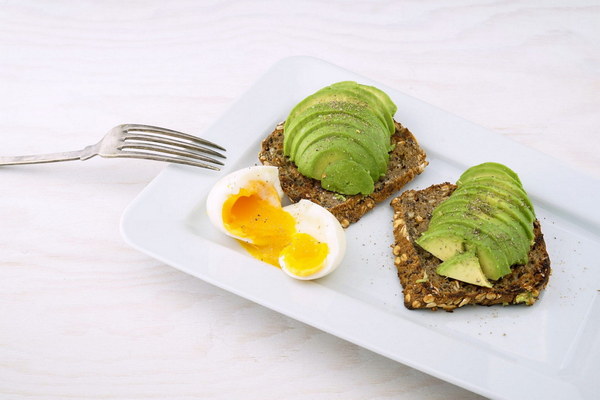Overindulgence in Postpartum Nutrition A Balancing Act for New Mothers
In the realm of postpartum care, new mothers are often bombarded with advice on the importance of nutrition to aid in their recovery and to ensure the health of their newborns. While it's true that adequate nourishment is crucial during this period, there is a fine line between adequate and excessive. Overindulgence in postpartum nutrition can lead to a host of health issues, and it's essential for new mothers to strike a balance. This article delves into the consequences of overindulgence in postpartum nutrition and offers tips on how to maintain a healthy diet during this delicate phase.
The Postpartum Period: A Critical Time for Nutrition
The postpartum period, which typically spans the first six weeks after childbirth, is a time when the body is in a state of flux. Hormones are fluctuating, the uterus is shrinking back to its pre-pregnancy size, and the body is working tirelessly to recover from the demands of pregnancy and childbirth. It is during this time that nutrition plays a pivotal role, as it supports the healing process and helps new mothers regain their strength.
However, the concept of adequate nutrition can vary greatly. In some cultures, new mothers are encouraged to consume large quantities of food to make up for the loss of blood and to provide energy for breastfeeding. While the intention behind these practices is well-meaning, they can lead to overindulgence and subsequent health issues.
The Dangers of Overindulgence in Postpartum Nutrition
1. Weight Gain: One of the most immediate consequences of overindulgence in postpartum nutrition is weight gain. While it's normal to gain weight during pregnancy, excessive eating postpartum can exacerbate the issue, making it more challenging to lose the extra pounds.
2. Gastrointestinal Discomfort: Consuming large quantities of food can lead to gastrointestinal discomfort, including bloating, gas, and indigestion. This discomfort can be exacerbated by the introduction of new foods or the consumption of high-fat, high-sugar, or spicy foods.
3. Blood Sugar Imbalances: Overindulgence in sugary or processed foods can cause blood sugar levels to fluctuate dramatically. This can lead to symptoms such as fatigue, irritability, and mood swings, which can be particularly challenging for new mothers who are already sleep-deprived.
4. Heart Health Risks: A diet high in saturated fats and processed foods can increase the risk of cardiovascular disease, particularly in women who may already be at a higher risk due to hormonal changes and the stress of pregnancy and childbirth.
5. Breastfeeding Complications: Excessive consumption of certain foods, such as dairy or spicy foods, can lead to breastfeeding complications, including breast engorgement and nipple soreness.
Balancing Postpartum Nutrition
So, how can new mothers strike a balance between nourishing their bodies and avoiding overindulgence? Here are some tips:

1. Focus on Nutrient-Dense Foods: Choose a variety of nutrient-dense foods, such as lean proteins, whole grains, fruits, vegetables, and healthy fats. These foods will provide the necessary nutrients to support healing and energy levels without contributing to unnecessary weight gain.
2. Listen to Your Body: Pay attention to your body's hunger and fullness cues. Eat when you're hungry and stop when you're satisfied, rather than eating out of habit or social pressure.
3. Plan Balanced Meals: Plan meals and snacks that include a balance of protein, carbohydrates, and healthy fats. This will help maintain stable blood sugar levels and keep you feeling energized throughout the day.
4. Stay Hydrated: Drink plenty of water throughout the day to support digestion, breastfeeding, and overall hydration.
5. Seek Professional Guidance: If you're unsure about what constitutes a balanced diet, consider consulting a registered dietitian who can provide personalized advice based on your individual needs.
In conclusion, overindulgence in postpartum nutrition can have a range of negative consequences. By focusing on nutrient-dense foods, listening to your body's cues, and seeking professional guidance when needed, new mothers can maintain a healthy diet that supports their recovery and the well-being of their newborns.









